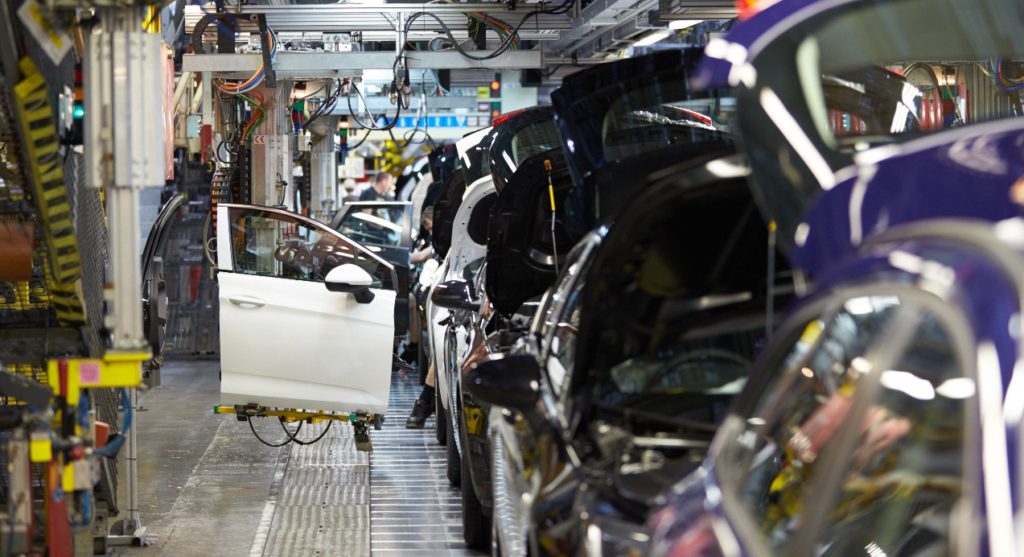Stellantis invests in the UK with Ellesmere Port BEV plans
06 July 2021

Stellantis is to invest £100 million (€117 million) in its Ellesmere Port UK plant, securing the site’s future after years of uncertainty.
The OEM will use Ellesmere Port to produce battery-electric vehicles (BEVs) for passenger and light-commercial vehicle (LCV) markets. It will be the first Stellantis plant to focus solely on BEV production and will cover the Vauxhall, Opel, Peugeot and Citroën brands for both domestic and export markets.
The announcement is a further boost for the UK’s automotive industry following years of uncertainty due to the protracted Brexit negotiations. Earlier this month, Nissan announced a massive investment in its Sunderland plant, which would see a new model produced there and a gigafactory built near the site.
Renewed confidence
Both Sunderland and Ellesmere Port were under threat of closure while the Brexit deal was negotiated. However, while fears around Nissan’s factory cooled after the process was completed, the merger of PSA Group and Fiat Chrysler Automobiles (FCA) led to further concerns over the future of the former Vauxhall/Opel plant. The carmaker has been working with the UK government to develop a plan for the site that fits in with the country’s plans for the electric future of its vehicle parc.
‘Performance is always the trigger for sustainability, and this £100 million investment demonstrates our commitment to the UK and to Ellesmere Port,’ said Carlos Tavares, chief executive officer of Stellantis. ‘I particularly want to thank our highly-skilled, dedicated workforce for their patience and contribution; we never let them down.
‘Equally, I want to thank our partners, the Unite union, for their open mindset and strong cooperation and, of course, the UK government for their continued support. Producing battery-electric vehicles here will support clean, safe and affordable mobility for the citizens. Since 1903, Vauxhall has manufactured vehicles in Britain, and we will continue to do so.’
UK government secretary of state for business, energy and industrial strategy, Kwasi Kwarteng, added: ‘Ellesmere Port’s proud tradition in vehicle manufacturing will continue for many years to come thanks to today’s investment. Stellantis’ decision to double down on their commitment to this site is a clear vote of confidence in the UK as one of the best locations globally for competitive, high-quality automotive production.
‘Today’s decision will not only power Ellesmere Port into a clean future but will secure thousands of jobs across the region in the supply chain. In this global race to secure electric vehicle production, we are proud to support Britain’s auto sector in this crucial transition as we work to build back better.’
No gigafactory location
The announcement means an end to production of the Vauxhall/Opel Astra at the plant. While no specific statement has been made, the vehicle will likely move to a location in southern Europe and be split with Stellantis’ plant at Rüsselsheim in Germany, as previous reports have suggested.
However, the new era of manufacturing will see the transformation of the Ellesmere Port plant with a new body shop, upgraded general assembly, compression of the site area and the creation of an on-site, battery-pack assembly. There will be further support to enable a pathway to carbon-neutrality for the plant by the middle of this decade. Stellantis aims for the site to be 100% self-sufficient for electricity, and work will commence imminently on potential wind and solar farms.
Stellantis has also announced the intention to consult on further investment into the Ellesmere Port site to create a new UK parts distribution centre.
However, there is no mention of a gigafactory being built close to the plant, bucking the recent trend for carmakers to announce such projects. With Ellesmere Port producing only BEV models, the carmaker may establish a partnership with an independent producer, such as Britishvolt. The company could also ship batteries from the continent, although this would add to costs and lengthen the supply chain. Stellantis is expected to make a number of announcements around electrification at its upcoming ‘EV Day’ event on 8 July, and Autovista24 will bring you the latest information as it becomes available.
LCV-based models
Production of the new models at the plant will begin next year. Ellesmere Port will produce eight BEVs in total, comprising four LCVs and their passenger-car derivatives. These include:
| Electric LCV | Electric Passenger Car |
| Vauxhall Combo-e | Vauxhall Combo-e Life |
| Opel Combo-e | Opel Combo-e Life |
| Peugeot e-Partner | Peugeot e-Rifter |
| Citroën e-Berlingo | Citroën e-Berlingo |
The models are all powered by a 100kW (136hp) motor with a 50kWh lithium-ion battery that will take just 30 minutes to charge from 0% to 80%. Under WLTP conditions, they offer up to 174 miles of range.
According to the manufacturer, the passenger-car versions will enable families to enjoy a ‘zero-emission active life’. They will feature up to seven seats and ‘a modern high-tech interior, with great levels of comfort and adaptability, and interior space, premium comfort and smart-safety features.’


